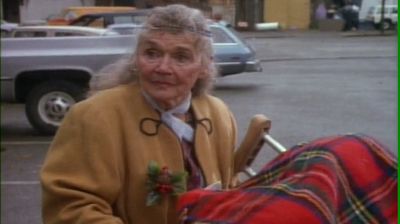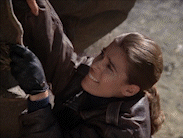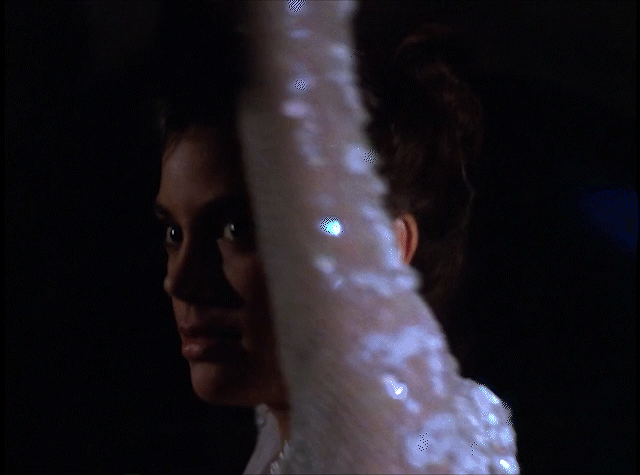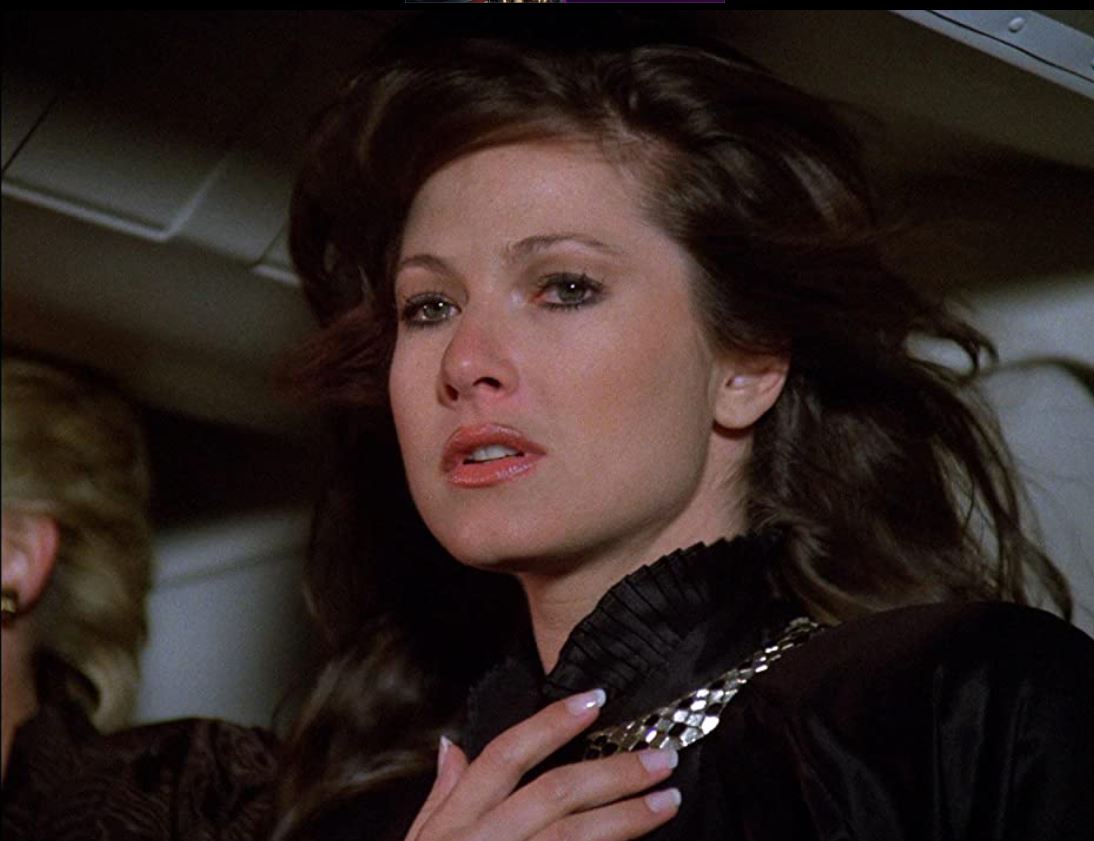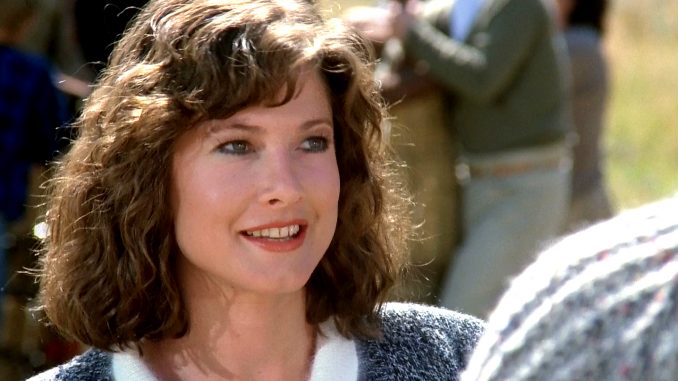
New Contestant: The Name's MacGyver
February 16, 2022
If you watched me on Jeopardy!, you are already aware that the topic of how pop culture affects the English language is a research interest of mine. It is with great pride, therefore, that I introduce the DFGRR's latest test subject, and first one to have his name in the Oxford English Dictionary: MacGyver.
![MacGyver TRANSITIVE VERB [WITH OBJECT] informal US Make or repair (an object) in an improvised or inventive way, making use of whatever items are at hand.](https://deadfictionalgirlfriendsreport.com/bl-content/uploads/pages/b0752d5f98acd98dcaa508a5b7930020/Macgyverdefinition(2).jpg)
Interestingly, the word was not added to the OED until 2015, which was 23 years after the series' cancelation, and at least 26 years after the first recorded usage of "MacGyver" as a verb (from an episode of The Arsenio Hall Show). In order to explore the word's namesake, therefore, we should first pay attention to...
The Times
MacGyver aired from September 29, 1985 to May 21, 1992. It is therefore the first of our contestants to premiere in a year that is also the title of a song. If you're a Boomer or a Gen Xer, that probably doesn't seem like it was too long ago. For the benefit of Millennials and Gen Z, though, I should probably try to put MacGyver's age in context.
Cast your mind back to the fall of 1985. Reagan was starting his second term. Gorbachev had just become leader of the USSR. The concept of PG-13 movies was exactly 1 year old, having made its debut in a movie about American teenagers thwarting a Soviet land invasion of the continental US. The AIDS crisis was the elephant in the room. Back to the Future and A View to a Kill were tearing up the box office. The top-rated TV series in the country starred the rapist Bill Cosby. The Supreme Court was hearing arguments about whether dismissing prospective jurors based on race was racist (answer: yes). The US had finally caved and put a woman into space 2 years earlier, yet had resoundingly voted against a female Vice President a year after that.
In the fall of 1985, on a Sunday evening at 8PM, opposite Murder, She Wrote on CBS, there premiered an ABC show about which I would eventually say, "wow, this is pretty dated, isn't it?"
How dated is MacGyver?
May the Eastern Europe of our hearts find freedom in the Nineties.
- Lulu proposes a toast in "The Lost Amadeus," 3/19/1990
On the feminism front, most characters refer to women professionals by names like "lady general" and "lady cop" because gender-neutral language wasn't a thing yet. Similarly, sexual harassment was not yet a national conversation. When MacGyver's boss comments on the ass of a female subordinate, Mac turns around to see whom he's looking at, instead of hollering for HR.
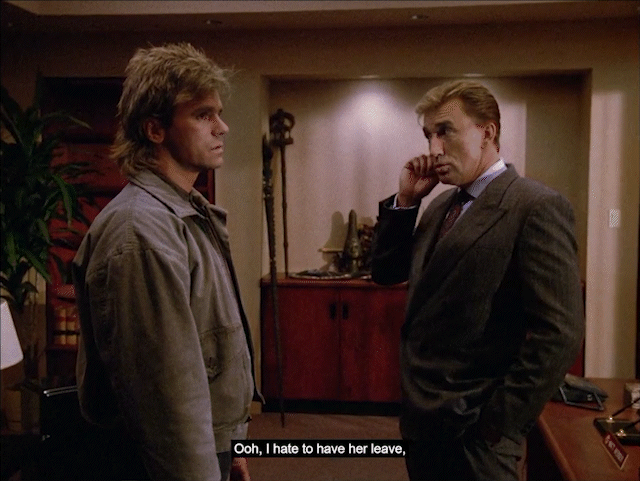
On the lifestyle front, MacGyver is an avowed environmentalist...who drives cars that get between 9-18 miles per gallon. This was not considered contradictory, because in the 1980s environmentalists were mostly concerned with things like acid rain, which has turned out to be the least of our worries.

Most significantly, though, the show's premise and tone are firmly ensconced in the Cold War, which in 1985 was expected to last indefinitely. Unfortunately for the MacGyver writers' room, it did not. The slow, multi-year sunset of the Soviet Union had a lot of geopolitical implications, but in Mac's case, it mostly meant his writers had to scramble harder for plot material. Or, as at least 1 fan put it on Reddit, he went "from action hero to social worker." As a result, the back half of the series had some solid episodes about real-world issues, but also had a whole lot of weird stuff, such as no fewer than 5 episodes framed as dream sequences. The end result is a tonally uneven series, in which a "goofy romp" episode might be followed by a "psychological thriller" episode, inducing a bit of whiplash in binge-watchers like me.
On the bright side, though, there is an episode available for every possible mood. If you need a good laugh, a good cry, or a good chance to roll your eyes and shout "seriously?!" . . . you've come to the right place. Sit back, relax, and watch these epic opening credits.
What is MacGyver about?
It's about MacGyver, a thirtysomething blond dude (Richard Dean Anderson) with vague job responsibilities, infinite resourcefulness, and a strong urge to help everyone. I really do mean everyone. If you are an old friend, former neighbor, ex-fiancée, coworker's relative, or random stranger who [ran up to him in a gas station / tried to pick him up at a trade show / picked his pocket in Budapest / kidnapped him out of the secret archives of dead Romanian dictator Nicolae Ceauşecu], MacGyver is perfectly willing to: hide your possible lovechild from counterfeiters; help you find the Holy Grail; enable your husband's defection; rescue your kidnapped son; deprogram your brainwashing; or spend all day saving you from a gang / your pimp / the Communist government of Hungary / whomever else is after you. What I am saying is that the dude's love language is acts of service, and he's got a lot of love to offer.
MacGyver spends his airtime solving problems. These problems include both run-of-the-mill hero stuff like carrying out international rescue missions or saving the world from several doomsday weapons, and "Special Episode" issues like saving endangered species or fundraising for local youth centers. At one point, he even locates the Holy Grail. Basically, if you have a problem, you can ask MacGyver to fix it, and he will try.
He won't, however, try to fix it in the most straightforward manner available. That is because straightforward solutions in action-adventure shows usually involve shooting the bad guy, and MacGyver won't touch guns. In-universe, this is because his childhood friend died in a negligent-discharge accident after MacGyver snuck his father's gun out for some target practice. Out of universe, it is because the writers needed an excuse to constantly have MacGyver create a solution in an improvised way, making use of whatever items are at hand. Luckily, the items at hand always include the exact set of ingredients required to stage a breakout, create a diversion, or even build a plane and fly away.
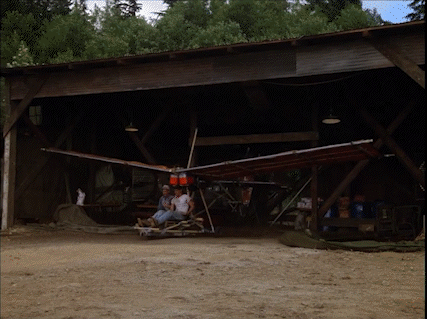
Now, 1980s network TV was full of action-adventure heroes who solved a different crisis every week, but what sets MacGyver apart is the lack of external help. He's not a well-funded private investigator or a soldier, he doesn't have a talking car or a mysterious benefactor or an angel riding shotgun. He's just...MacGyver, the invincible one-man army. I don't mean that he's a complete loner, since he does have friends and coworkers and sidekicks and neighbors and random strangers he's just met to interact with. For the most part, though, he doesn't need their help. He and he alone can solve all the world's problems through sheer wits and moxie, by inventing solutions out of random stuff he finds along the way. And that got his name into the dictionary.
Speaking of names, does he have a first name?
Not until the seventh season. Until then, everyone calls him by surname only - including his relatives, lovers, best friends, and archnemesis, as well as the phone book, the newspapers, his car registration, and, oddest of all, the Egyptian god of death. We're told his driver's license has his first name listed, but the person who tells us that follows it up with "...I think I'm gonna call you MacGyver."
"Name's MacGyver."
"First or last?"
"Yep."
- "Serenity," 1/8/1990.
Then when it's finally revealed, it turns out to be the horrible, embarrassing name of...*checks notes*. . ."Angus."
Does he have a Requisite Tragic Backstory?
Of course he does! This is the #DFGRR, after all. MacGyver's family is the third one in our study (so far) to suffer from all the women being dead.
- His grandmother drowned after his father crashed the car into a creek while on an errand to buy his grandfather a razor. (Said grandfather then didn't speak to Mac for nearly two decades out of guilt.)
- His mother later died of a stroke on the one Christmas that he couldn't make it home because he was on a mission in Afghanistan. He blames himself for this, naturally, until the Virgin Mary herself manifests on Christmas Eve 1989 to let him know his mom forgave him.
MacGyver is therefore a found-family man. He has innumerable friends whom he'd die for, but his blood relatives are limited to one grandfather, who dies in the Season 5 finale, and one long-lost son, whom they introduce in the Season 7 finale. But don't worry too much about him.
Why is MacGyver a candidate for the DFGRR?
The short answer is that his girlfriends keep dying.
The slightly longer answer is that MacGyver's writers had to keep him single, at all costs, lest he lose some of that lone-wolf heroism that made him seem so cool. As a result, all of his girlfriends either: turn out to be spies; prove to be extraordinarily stupid; become violently insane; die; or, in at least one case, do all of the above.
In-universe, characters suggest that MacGyver has a fear of commitment, but from a viewer's perspective, sheesh, I'd be a commitmentphobe myself if my partners kept trying to kill me!
Now, keep in mind that the writers were not against the idea of MacGyver feeling emotions. On the contrary, he genuinely cares about tons of things, because MacGyver is a show with a lot of heart. In fact, it's something of a spiritual successor to Bonanza-style Westerns, in which the enlightened, intelligent male heroes always manage to side with truth and justice (and the audience is expected to follow their lead.) MacGyver's Special Episodes raised awareness about everything from gun control, to the poaching of black rhinos, to teenage alcoholism, to adult illiteracy, to irresponsible logging, to the plight of Amerasian children that the US abandoned after the Vietnam War . . . you get the picture. And they sometimes even ended with specific calls to action, addressed directly to the audience. I cannot stress enough how much this show wanted to be a part of a better world.
So, let's do a simple equation here: socially conscious hero + parade of violent/duplicitous/insane women = one little problem: Mac is the guy who wants to make the world a better place, but all these nasty women just keep getting in his way.
GIF Description: Lucille Bluth from Arrested Development rolling her eyes, via GIPHY
That, my friends, steers the show straight into sexist territory, despite what I assume were good intentions from the writers. I really liked this show as a kid, before I became a cynical feminist. But then when I started a rewatch as an adult, the sexism smacked me right in the face. I felt like my younger self had drunk the Kool-Aid in a way, not noticing the show's problematic parts because I loved its overall flavor. So naturally, I decided that it belonged on this blog, with all the other franchises that I love but need to critique.
Are there any women...?
...behind the scenes?
Some, but not many. Let's break it down a bit.
The show was created by Lee David Zlotoff, and produced throughout its run by John Rich and Henry Winkler - who had extensive experience with repairing objects in an improvised way.
GIF description: Fonzie (Henry Winkler) hitting a jukebox from Happy Days, via GIPHY
All 139 episodes were directed by men.
Just 11 of them were written by women (counting co-writers). That's less than 8%, for those of you keeping score at home.
Why does it matter if there were women behind the scenes?
For that, I turn to the excellent point made by screenwriter and producer Justin Halpern, who once posted the following advice during a Q&A session on Reddit:
[N]o matter what the show is about; hire a lot of women on your writing staff. . . . no matter how "kind" or "supportive" [male writers are], the mere fact that there is only one woman [on staff] is the statement, which is "we don't care what women think."
(Emphasis mine.)
Justin Halpern is hardly a household name. Nevertheless, I'm gonna ask all of Hollywood to listen to this man, and then follow his advice by listening to women. It will seriously make your show's female characters just so, so much less annoying.
OK, how about female characters on-screen? Are there any?
Sure! And they're mostly pretty annoying!
For example:
- Penny Parker (Teri Hatcher) is an airheaded aspiring actress who frames MacGyver for stealing jewels from her Bulgarian boyfriend in season 1. MacGyver decides that he likes her for her unconventional attitude. (I have no earthly clue how he comes to that conclusion, so don't ask.) Penny goes on to do such
manipulativecharming things as "move into MacGyver's apartment without permission and guilt him into letting her stay." Her tone of voice is so grating that the podcast Making Fun of MacGyver once said, "I don't know why [the bad guys] don't just shoot them, or at least, her." On the bright side, she does save Mac's life once by high-kicking a gun out of a bad guy's hands.
- Nikki Carpenter (Elyssa Davalos) is a fellow agent with whom the writers try to give Mac belligerent sexual tension. That makes sense, since will-they-or-won't-they was super popular in 1987. Unfortunately, the writers bungle the characterization of this relationship completely such that, instead of having sexual tension, Nikki and MacGyver kinda just hate each other. Nikki disappears without explanation after just 6 episodes.
Please tell me those aren't the only recurring women on screen...?
No, there are others who only show up 2 times apiece. In fact, three such two-time guest stars feature in an episode that's actually called, I kid you not, "MacGyver's Women." Unfortunately, that episode is so egregious that my notes on it exceeded my supply of note paper, leading me to tweet the following:
Last night in the #DFGRR research room, I paused an episode of MacGyver to furiously scribble my thoughts on the female characters' behavior so far. My husband: "we're only 4 minutes in, counting the theme song... I'll get you more paper."
— Dead Fictional Girlfriends Research Report (@DeadFGReport) February 2, 2022
Is this show any good?
Well. Let me ask you this: Do you miss the 1980s, and if so, how much?
Since its cancelation, MacGyver has inspired two TV movies, a revival (2016-2021), an SNL parody that became a movie which became a TV series, and most recently, a stage musical adaptation (yes, really). Clearly, some people in the world remember MacGyver positively.
That said, I will admit that it's not prestige television, for the simple reason that we didn't have prestige television in the late 80s. Nor did we have cynical TV with snarky antiheroes who constantly complain about having to do the right thing; that template was more-or-less invented by NYPD Blue (1993-2005). What we had instead was MacGyver, an earnest show about a genuinely kind person who makes the world a better place through wits and moxie, while the women in his life drop like flies.
As a result of that particular late-80s mix, if you're watching MacGyver in 2021, it can seem either mildly hokey or hopelessly cheesy, depending on the preachiness and/or absurdity of the episode in question. But if you are at all nostalgic for the style of TV that assumed all issues - including those of social, political, personal, international, and global importance - could be solved by a sufficiently motivated white-guy hero, in 48 minutes or less, you will enjoy MacGyver.
You might also like this show if:
- You find Richard Dean Anderson's voice soothing,
- You think that he's real pretty when he smiles,

- You miss mullets, or
- You find it interesting that this franchise is the...
First contestant to have a watch-through podcast invite me as a guest.
There are watch-through podcasts for all of our contestants, including one hosted by the god of Supernatural, a comedic meta-take on the concept of watch-through podcasts (Bonanas for Bonanza), and far too many to list about Star Trek and James Bond. Nevertheless, none of those shows ever expressed interest in hearing from the DFGRR. Instead, what happened was that I tweeted at Making Fun of MacGyver, in October 2021, and found myself being interviewed on their Halloween episode.
So MacGyver may not be a mega-long-runner like Supernatural or Bonanza, as genre-defining as Star Trek, or as high-budget as James Bond, but its fandom is a welcoming one. And that alone might make the show worth a shot.
Tune in next time for our full report on Mac's girlfriends. Until then, keep the sexy lamps burning.
